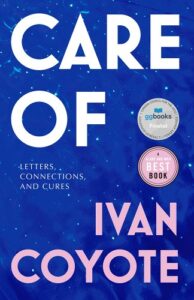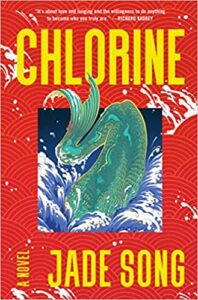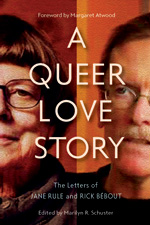Buy this from Bookshop.org to support local bookstores and the Lesbrary!
Ivan Coyote is one of my all-time favourite authors; I love their short stories and their essay collections. I’ve gotten to see them perform several times, and it’s always an amazing experience. Which is why I was thrown when I listened to the audiobook of Rebent Sinner when it came out and… didn’t love it? I didn’t know what to think. Was it me? Or had their writing changed? So, while I went out and bought a new, still-in-hardcover copy of Care of—something I very rarely do—it sat unread on my shelves for months, because I was nervous that I wouldn’t like it, either. Luckily, I was completely wrong.
I ended up listening to the audiobook of this one, too, and as soon as I hit play, I wanted to be listening to it all the time. Ivan Coyote has such a comforting, kitchen table storyteller way of speaking. It’s soothing to listen to, while the subject matter addresses issues like transphobia.
This is a collection of letters. During the early months of the pandemic, their shows had to come to a halt, and they used that newfound time to answer emails and letters that they had been saving until they had the time to give them the attention they deserved—some had been waiting years for that response. I’ve realized lately that I love these sort of collections in audiobook: Dear Sugar and Dear Prudence are two other audiobooks I couldn’t stop listening to.
As always, Coyote is a compassionate, thoughtful voice no matter whose letter they are answering. I actually feel like I enjoyed it so much that I wanted to listen to it even when I was too distracted to pay as much attention as it deserves, so I plan on rereading/relistening to this again very soon.
Even though it’s written during the early days of the pandemic, it doesn’t feel dated. The topics being addressed are just as relevant now as they were then, and I think having a little bit of distance from 2020 helped me appreciate that aspect more; I’m not sure I could have listened to/read it during 2020, if it had been released then.
Despite my comparisons to Dear Sugar and Dear Prudence, these aren’t really letters with advice. They’re more responses with commiserations, with stories that the original letter reminded them of, and sometimes with questions or pleas for the letter writer. They’re personal, considered, and empathetic responses to all kinds of different people who have reached out to them.
If you haven’t read Ivan Coyote’s books before, this is a good place to start. And if you have, you won’t be disappointed by picking this one up, especially as an audiobook.



